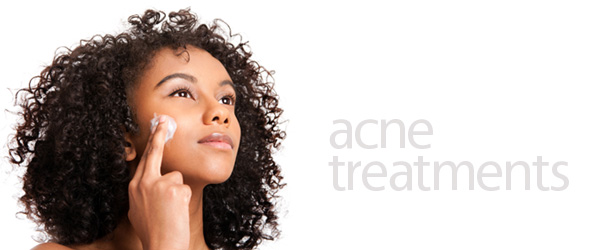Acne Treatment

What is Acne
Acne is a skin condition that occurs when your hair follicles become plugged with oil and dead skin cells. Acne most commonly appears on your face, neck, chest, back and shoulders. Acne can be distressing and annoyingly persistent. Acne lesions heal slowly, and when one begins to resolve, others seem to crop up.
Depending on its severity, acne can cause emotional distress and lead to scarring of the skin. The good news is that effective treatments are available — and the earlier treatment is started, the lower your risk of lasting physical and emotional damage.
Symptoms
Acne typically appears on your face, neck, chest, back and shoulders, which are the areas of your skin with the largest number of functional oil glands. Acne can take the following forms:
- Noninflammatory lesions
- Comedones (whiteheads and blackheads) are created when the openings of hair follicles become clogged and blocked with oil secretions, dead skin cells and sometimes bacteria. When comedones (koe-muh-DOE-neez) are open at the skin surface, they’re called blackheads because of the dark appearance of the plugs in the hair follicles. When comedones are closed, they’re called whiteheads — slightly raised, skin-colored bumps.
- Inflammatory lesions
- Papules are small raised bumps that signal inflammation or infection in the hair follicles. Papules may be red and tender.
- Pustules (pimples) are red, tender bumps with white pus at their tips.
- Nodules are large, solid, painful lumps beneath the surface of the skin. They’re formed by the buildup of secretions deep within hair follicles.
- Cysts are painful, pus-filled lumps beneath the surface of the skin. These boil-like infections can cause scars.
When to see a doctor
Acne usually isn’t a serious medical condition. But you may want to seek medical treatment from a dermatologist for persistent pimples or inflamed cysts to avoid scarring or other damage to your skin. If acne and the scars it may have left are affecting your social relationships or self-esteem, you may also want to ask a dermatologist if your acne can be controlled or if your scars can be diminished.
Causes
Three factors contribute to the formation of acne:
- Overproduction of oil (sebum)
- Irregular shedding of dead skin cells resulting in irritation of the hair follicles of your skin
- Buildup of bacteria
Acne occurs when the hair follicles become plugged with oil and dead skin cells. Hair follicles are connected to sebaceous glands. These glands secrete an oily substance known as sebum to lubricate your hair and skin. Sebum normally travels up along the hair shafts and then out through the openings of the hair follicles onto the surface of your skin. When your body produces an excess amount of sebum and dead skin cells, the two can build up in the hair follicles and form together as a soft plug, creating an environment where bacteria can thrive.
This plug may cause the follicle wall to bulge and produce a whitehead. Or, the plug may be open to the surface and may darken, causing a blackhead. Pimples are raised red spots with a white center that develop when blocked hair follicles become inflamed or infected. Blockages and inflammation that develop deep inside hair follicles produce lumps beneath the surface of your skin called cysts. Other pores in your skin, which are the openings of the sweat glands onto your skin, aren’t normally involved in acne.
Factors that may worsen acne These factors can trigger or aggravate an existing case of acne:
- Hormones. Androgens are hormones that increase in boys and girls during puberty and cause the sebaceous glands to enlarge and make more sebum. Hormonal changes related to pregnancy and the use of oral contraceptives can also affect sebum production.
- Certain medications. Drugs containing corticosteroids, androgens or lithium are known to cause acne.
- Diet. Studies indicate that certain dietary factors, including dairy products and carbohydrate-rich foods — such as bread, bagels and chips, which increase blood sugar — may trigger acne.
Acne myths Contrary to what some people think, these factors have little effect on acne:
- Greasy foods and chocolate have proved to have little to no effect on the development or course of acne.
- Dirty skin. Acne isn’t caused by dirt. In fact, scrubbing the skin too hard or cleansing with harsh soaps or chemicals irritates the skin and can make acne worse. Simple cleansing of the skin to remove excess oil and dead skin cells is all that’s required.
( Source: www.mayoclinic.com )



